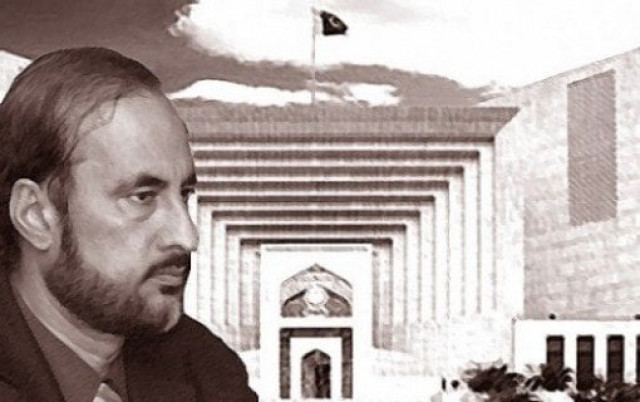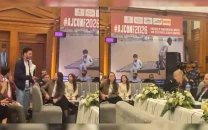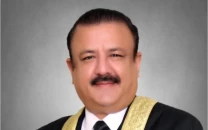18th amendment case: Govt lawyer tenders apology

Towards the end of the day’s proceedings, the bench asked the federation’s counsel Dr Abdul Basit to explain why he had not submitted his reply to the show-cause notice.
Basit told the court that first, the notice had been snatched away from him by a journalist before he could read it, and second, since the federation has yet to pay his fee, he needed another two to three weeks to submit his reply. But the chief justice refused to extend the date of submitting a reply beyond June 3.
Meanwhile, presenting his arguments on behalf of his client Nadeem Ahmad who has challenged the 18th amendment before the apex court, Akram Sheikh said a judicial commission featuring Law Minister Dr Babar Awan, who says the verdict of the Supreme Court on the National Reconciliation Ordinance will be implemented over his dead body, is not acceptable.
In his subsequent arguments before the 17-member bench headed by Chief Justice Iftikhar Chaudhry hearing the case, Sheikh said efforts to weaken the judiciary have been underway for the last three years. However, in its defence, the government claimed that the previous system for the appointment of judges was wrong. At this point, the bench said that since both sides had admitted the independence of the judiciary, the only question left for the bench to determine was whether the judicial commission and the procedure for selecting judges described in article 175-A undermines the independence of the judiciary.
In response to another point raised by Sheikh, Justice Ramday said the government itself has conceded that previous governments had been playing with the constitution, which weakened institutions and embedded a presidential system of governance into the constitution. This, said Ramday, proved that the entire system is disturbed when the basic structure of the constitution is changed.
Akram also told the court that since the meetings of the parliamentary committee on constitutional reform had been in camera, he was unable to procure their records despite his best efforts. Sheikh also told the court that he had written to the speaker of the National Assembly and the chairman of the Senate to provide him with the same.
Sheikh also confessed he didn’t know much about the committee except what was available in newspapers and on the internet. As such, he couldn’t answer the court’s queries regarding the number of political parties that had participated in the process nor did he know whether the small parties of Balochistan had been included in the deliberations process.
Sheikh also contended that all stakeholders are involved in the formulation of a new policy and that the judiciary was not consulted while drafting article 175. He said the said provision bore the distinct imprint of executive intervention.
This, however, Justice Asif Saeed Khosa shot down, saying: “Since the method has changed, the older one is irrelevant to the argument.” Meanwhile, answering Justice Tassaduq Hussain Jillani’s question, Sheikh told the court that the parliament in England does not play a role in the appointment of judges.
Before Sheikh could conclude his arguments, the court rose for the day. The hearing will continue on Wednesday.
Published in the Express Tribune, June 2nd, 2010.


















COMMENTS
Comments are moderated and generally will be posted if they are on-topic and not abusive.
For more information, please see our Comments FAQ